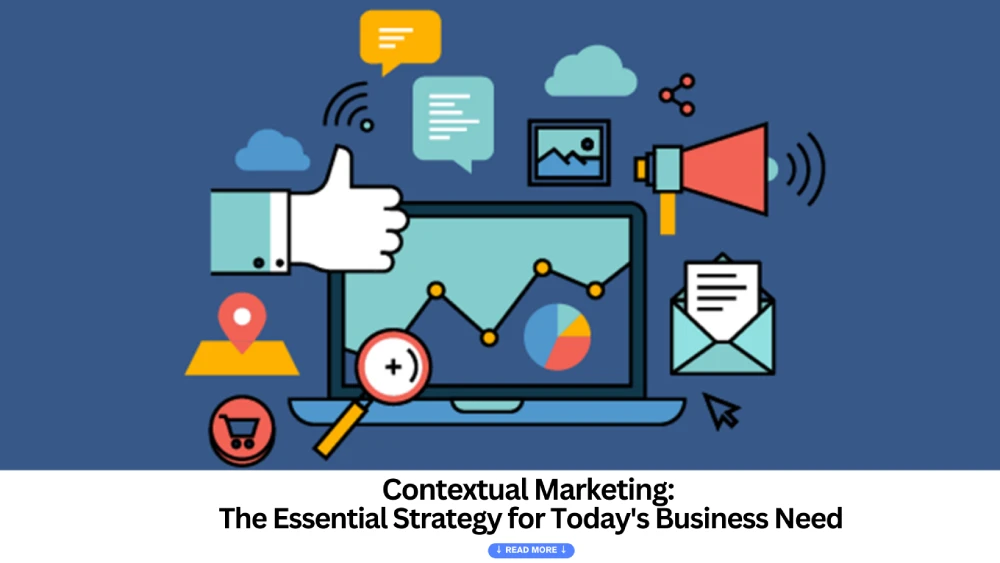Contextual Marketing: The Essential Strategy for Today's Business Need
Jan 10, 2022

Introduction
Any Marketer wants to leverage the most recent consumer insight available to deliver timely and relevant offers. Real-time marketing promises to meet the needs of consumers with the right message in the right place at the right time.
Financial marketers must balance the customer-centric view, the product view, and the channel view in planning real-time offers. If the data isn't evaluated fast enough, and the request isn't served up immediately, it doesn't matter if it's the most relevant offer in the world; you're likely going to lose that opportunity with the customer.
Greater access to consumer behavior online and the ability to process and convert this insight into dynamically personalised content and offers are the core of Multi-Channel Marketing Automation.
Multi-channel marketing automation is an efficient way to manage various digital marketing campaigns. It replaces the range of fragmented tools required for email marketing, advertising marketing, website visitor tracking, SMS, web banners, OTT messengers, and Push Notifications (including web push and in-app push).
The greatest thing about Marketing Automation is that it helps smoothen the playing field. Small companies find marketing automation platforms their secret weapon against companies with a dedicated marketing team.
Companies using Multi-channel Marketing Automation consistently report an increase in sales-ready leads. This is due to the valuable information that the platform provides. These platforms are real-time data-driven marketing platforms that let enterprises connect with their customers at the right time, with the correct information using the right channel.
With analytics at its core, they help enterprises improve their marketing campaigns' success and notify the return on investment (ROI).
Purpose of Contextual Marketing
Do you ever think about why there is so much buzz in the market in real-time? Does relevance matter when everyone is talking about real-time? Why?
This is because the purchase cycle is becoming short. People are making decisions at a fast pace. Therefore, the organization also must make decisions faster than before. You can offer relevant conversation to your customer if you are with him at a given moment.
And there is a significant probability that he will respond. As an enterprise, you have to analyze the situation and demonstrate your customers' needs. This brings customer loyalty and helps in building a relationship.
The two things that are very important for real-time marketing and which can create differentiation for the organization are:
-
Capability to create an insight of the customer, which can be used in real-time.
-
Organization process and technical flexibility to take the relevant data and deliver it to the right channel.
While planning real-time offers, marketers must balance the four pillars of real-time marketing, which include:
-
Who is your customer?
-
What is the location and his behavior?
-
Which is the most relevant offer for him?
-
His preferred channel of communication
Any technology must address these four pillars. Marketing automation platforms are one such tool available to enterprises to achieve them.
Why Does Enterprise Need Marketing Automation?
Enterprises are already into using digital marketing tools, so they may think Multi-channel Marketing Automation is unnecessary. But there's more to it. It lets you mimic your customer behavior by personalizing your efforts to the right person at the right place at the right time.
It impersonates people's ingrained behaviors that they're already exhibiting. And then it allows you to reach people exactly when they need to be achieved. (In a way that's impossible to perform manually.)
Benefits of Contextual Marketing Campaigns
-
Enhanced Personalization
Contextual marketing campaigns enable companies to personalise their communications based on individual user data and behavior. Companies may give highly tailored information by evaluating customer preferences, purchasing history, and online interactions.
-
Improved Customer Experience
A smooth and satisfying consumer experience is greatly enhanced by contextual marketing. Contextual campaigns that anticipate and respond to customer demands enhance the whole experience and strengthen brand loyalty.
-
Higher Conversion Rates
Conversion rates are directly affected by the relevance of information in contextual marketing. When consumers receive messages that are relevant to their interests and preferences, they are more likely to perform the intended action, whether it is making a purchase, signing up for a newsletter, or sharing information.
-
Real-time Engagement
By taking advantage of the preferences and present behavior of users, contextual marketing makes real-time engagement possible. Real-time customization increases the likelihood of drawing in users, prompting prompt reactions and creating a sense of urgency that may accelerate conversions.
-
Optimal Resource Utilization
Businesses can maximize their marketing resources by concentrating on context. Tailoring ads based on user behavior allows businesses to allocate resources more efficiently, focusing efforts on the most productive techniques and channels.
Challenges of Contextual Marketing Campaigns
Undertaking contextual marketing campaigns presents several hurdles:
-
Privacy Dilemma
Balancing personalization with user privacy is an ongoing challenge, necessitating compliance with strict data protection regulations.
-
Dynamic Content Management
The need to adapt to constantly changing content and user behaviors requires robust systems to ensure ongoing relevance without obsolescence.
-
Algorithmic Precision
Dependence on algorithms for contextual targeting with videos demands continuous fine-tuning. Ensuring an accurate understanding of user context is vital for campaign success.
-
Integration Complexity
Achieving seamless integration across diverse channels and platforms poses a challenge. Maintaining a consistent, contextual experience demands technical expertise.
-
Adaptation to Trends
Staying attuned to evolving trends and technologies is a perpetual challenge. Flexibility and adaptability are crucial for sustaining the efficacy of contextual marketing endeavors.
Frequently Asked Questions
What are contextual influences in marketing?
Contextual influences in marketing involve tailoring content to match the user's context, delivering more relevant messages that align with their current situation and needs.
What are contextual targeting trends?
Current contextual targeting with videos utilizes advanced algorithms to analyze user behavior, preferences, and content context. These trends prioritize precision, ensuring ads seamlessly align with surrounding content for maximum impact.
How effective is contextual advertising?
Contextual advertising is highly effective, delivering personalised content based on user behavior and interests. Its ability to align with the user's context enhances engagement, significantly increasing the likelihood of successful conversions.
What are the targeting methods that can be used for contextual marketing?
Contextual marketing benefits from various targeting methods, with a notable trend being contextual targeting with videos. By considering user behavior and content relevance, this approach ensures your message is delivered in a context that resonates, maximizing its effectiveness.
Conclusion
Contextual marketing proves itself as an indispensable strategy for contemporary businesses. By customizing content to align with user context, preferences, and behaviors, businesses cultivate more profound connections with their audience.
This personalised approach not only amplifies engagement but also plays a pivotal role in the success and relevance of today's enterprises.
Recommended Readings:
-
Powerful Call To Action Importance in Personalized Video Marketing




